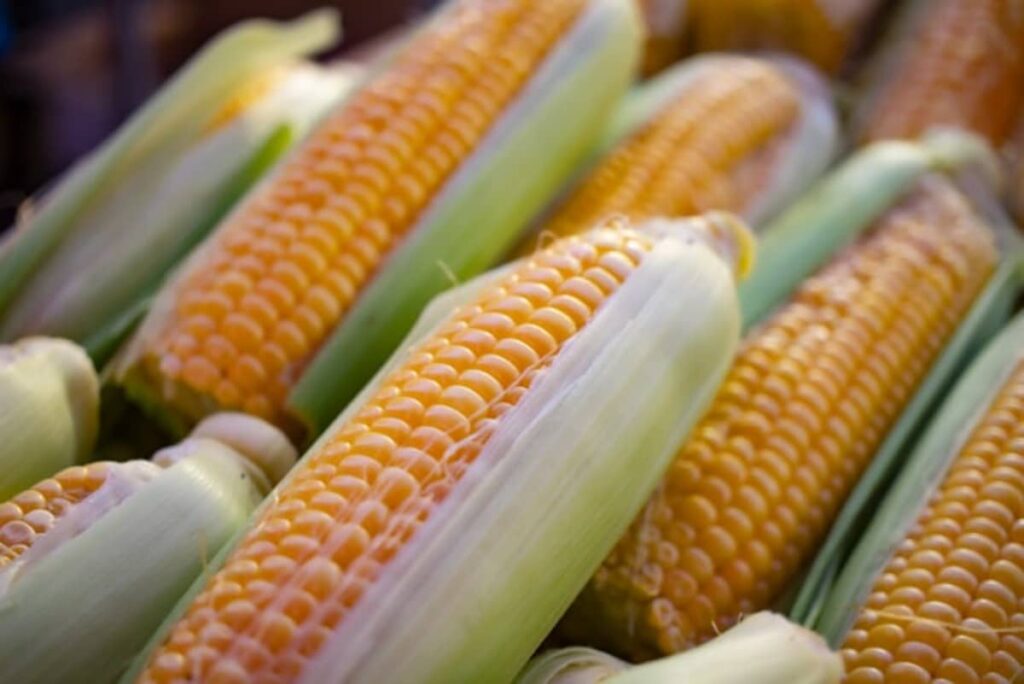
What Is Corn?
Corn is considered both a vegetable and a cereal grain. Corn is a remarkable crop that holds a unique position in the culinary world. Classified as both a vegetable and a cereal grain, this versatile plant has become one of the most widely consumed cereal grains globally. From the sweet, juicy kernels enjoyed straight off the cob to the dry, starchy seeds used for making popcorn, corn’s diverse applications have made it a staple in many cuisines and dietary regimens.
Health benefits of eating Corn
Now talk about the health benefits of eating corn. There are a number of health benefits to eating corn. But the benefits differ slightly depending on the form of corn that you’re eating, such as popcorn or sweet corn.
There are plenty of nutrients. They include:
- protein
- vitamin B-6
- fiber
- copper
- zinc
- niacin
- potassium
Eye-Boosting Antioxidants
One of the standout nutritional benefits of corn is its rich content of antioxidant carotenoids, such as lutein and zeaxanthin. These powerful compounds have been shown to promote eye health and reduce the risk of age-related macular degeneration and cataracts. A study involving 356 middle-aged and older adults found a remarkable 43% reduction in the risk of macular degeneration in those with the highest intake of these carotenoids compared to those with the lowest intake.
Fiber for Digestive Health
In addition to its eye-health benefits, corn also boasts a significant amount of dietary fiber. This fiber can play a crucial role in promoting healthy digestion and reducing the risk of various digestive disorders. A long-term study involving over 47,000 adult men found that those who consumed popcorn at least twice a week had a significantly lower risk of developing diverticular disease, a common condition affecting the colon.
Antioxidant-Boosting Thermal Processing of Corns
Contrary to the common belief that heating food diminishes its nutritional value, a 2002 study published in the Journal of Agricultural and Food Chemistry revealed an intriguing finding. The study showed that when corn underwent thermal processing at 115 degrees Fahrenheit for 25 minutes, it experienced a remarkable 44% increase in antioxidant activity, a 550% boost in ferulic acid content, and a 54% rise in total phenolic quantity.
Ferulic Acid: A Powerful Antioxidant
Ferulic acid, one of the primary polyphenol antioxidants found in corn, stands out as a particularly noteworthy compound. Corn contains higher amounts of ferulic acid than other cereal grains, such as wheat, oats, and rice. This plant-based chemical has been linked to a range of potential health benefits, including antioxidant, anti-inflammatory, and anti-aging properties. Ferulic acid’s ability to scavenge harmful free radicals and protect vital organs, such as the liver, lungs, and brain, makes it a valuable asset in promoting overall well-being.
Phenolics Guardians of Cellular Health
In addition to ferulic acid, corn also boasts a rich array of phenolic compounds, which are potent antioxidants that play a crucial role in protecting the body from oxidative damage. These antioxidants help safeguard your DNA, lipids, and proteins, thereby reducing your risk of cancer and cardiovascular disease.
Balancing the Pros and Cons of Corn
While corn offers numerous nutritional benefits, it’s important to consider its potential drawbacks as well. Corn can spike blood sugar levels, which may be a concern for individuals with diabetes or those trying to manage their weight. Additionally, the widespread genetic modification of corn has raised some questions about its long-term health implications, although more research is needed in this area.
Moderation is Key
To reap the maximum benefits of corn while minimizing any potential risks, it’s advisable to consume it in moderation as part of a balanced and varied diet. By doing so, you can enjoy the eye-boosting antioxidants, digestive-friendly fiber, and the wealth of other vitamins and minerals that corn has to offer, while maintaining overall health and well-being.
Conclusion Of Unlocking Corn’s Nutritional Potential
Corn is a remarkable food that offers a diverse array of health benefits, from promoting eye health to supporting digestive function and providing a rich source of antioxidants. By understanding the nuances of its nutritional profile and the impact of thermal processing, we can unlock the full potential of this versatile cereal grain and incorporate it into our diets in a way that optimizes our overall well-being. With a balanced approach and an appreciation for corn’s multifaceted nature, we can harness the power of this remarkable crop to nourish our bodies and enhance our quality of life.

